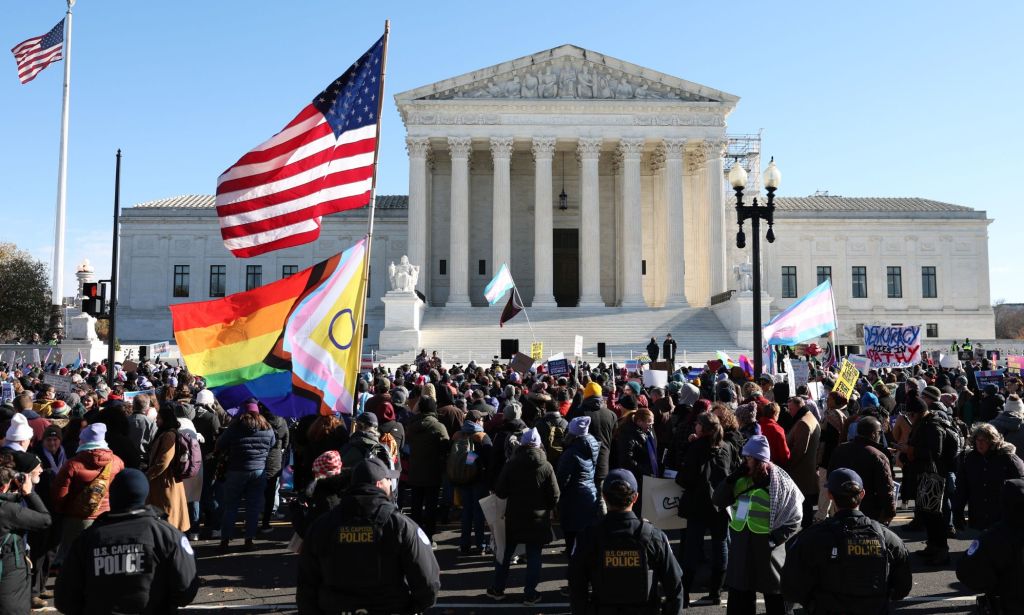US Solicitor General passionately defends trans rights in Supreme Court argument

Elizabeth Prelogar passionately defended trans rights in an oral argument. (Twitter)
Elizabeth Prelogar passionately defended trans rights in an oral argument. (Twitter)
US solicitor general Elizabeth Prelogar made her support of trans people heard during arguments in the case of US v Skrmetti, which is before the Supreme Court.
Prelogar argued that Tennessee’s effort to ban gender-affirming care in the state would have detrimental effects on the health and well-being of thousands of young people, claiming that the state’s lawmakers had imposed “measured guardrails” by banning puberty blockers only for transgender youngsters, not for those who use them for other medical purposes.
“Someone assigned female at birth can’t receive medication to live as a male, but someone assigned male can. If you change the individual sex, it changes the result. That’s a facial sex classification, and a law like that can’t stand on bare rationality,” she said.

After a bill which bans gender-affirming care, including puberty blockers, for transgender youngsters, was passed by lawmakers in Tennessee, the American Civil Liberties Union and Lambda Legal and filed a legal complaint.
A federal judge initially blocked the bill, but that ruling was overturned on appeal. The Supreme Court agreed to hear the case earlier this year.
Elizabeth Prelogar argues that lawmakers shouldn’t control trans youngster’s lives
In her arguments, Prelogar told the court, which has a 6-3 conservative majority, that the attempt to ban healthcare meant lawmakers were superseding experts and families.
Asked by justices John Roberts and Brett Kavanaugh whether the US should be following countries such as England and Sweden in banning puberty blockers, she said: “It doesn’t matter what parents decide is best for their children, it doesn’t matter what patients would choose for themselves, and it doesn’t matter if doctors believe this treatment is essential for individual patients, [the law] categorically bans treatment when, and only when, it’s inconsistent with the patient’s birth sex.”
Chief justice Roberts, known as a conservative, then asked: “Doesn’t that make a stronger case for us to leave those determinations in the legislative bodies, rather than try to determine for ourselves?”
Prelogar replied that while debate about the safety of puberty blockers – which are physically reversible – rages on, “We do think there is a real space for states to regulate here.
“West Virginia was thinking about a total ban like this one but the senate majority leader, who’s a doctor, looked at the underlying studies, and the West Virginia legislature changed course and imposed a set of guardrails that are far more precisely tailored to concerns surrounding the delivery of this care.”
Share your thoughts! Let us know in the comments below, and remember to keep the conversation respectful.

